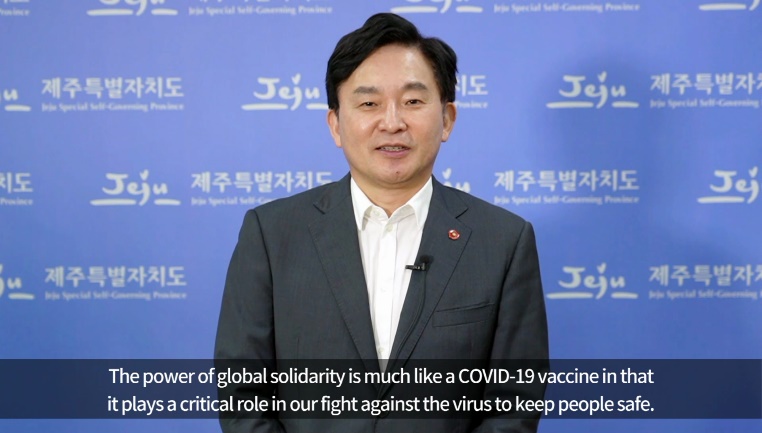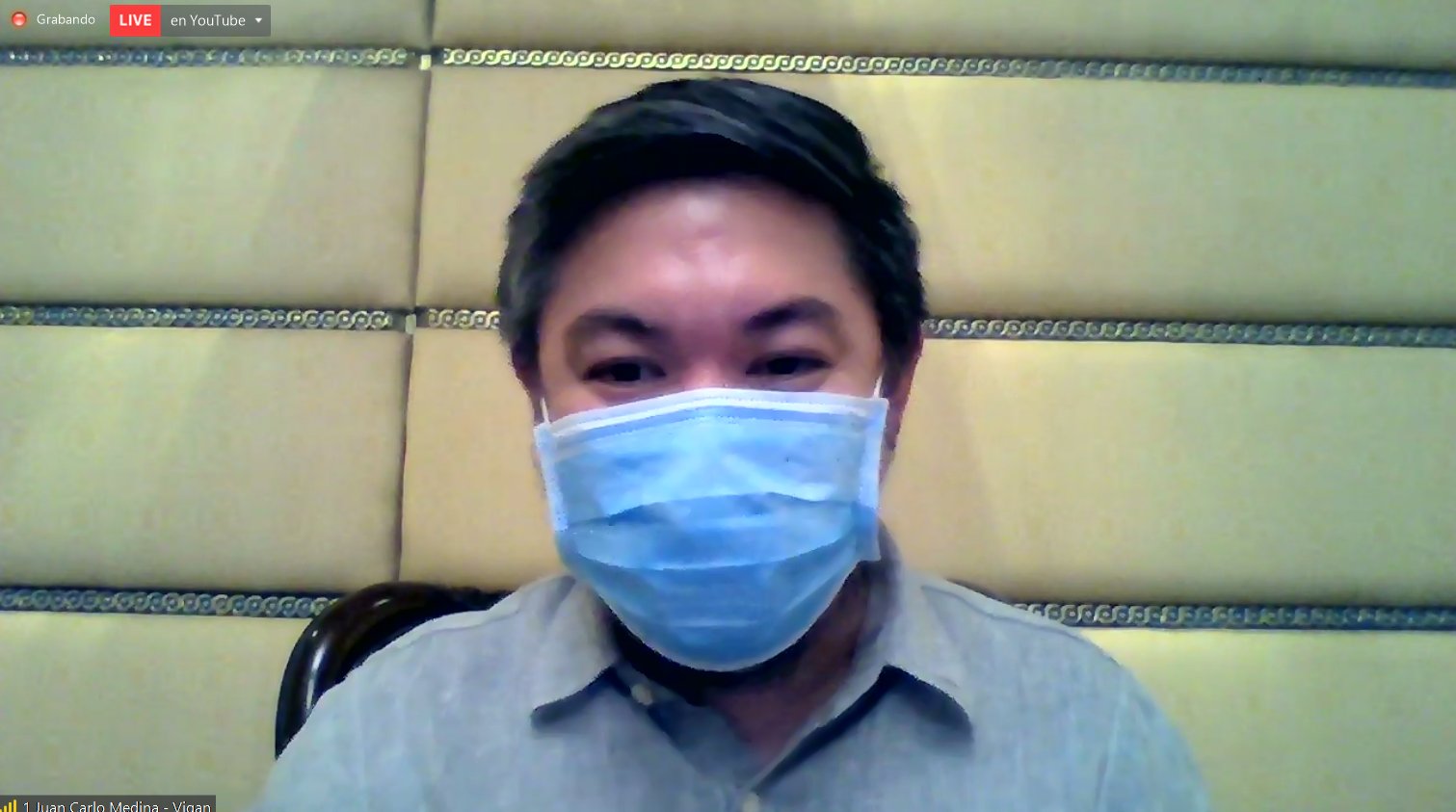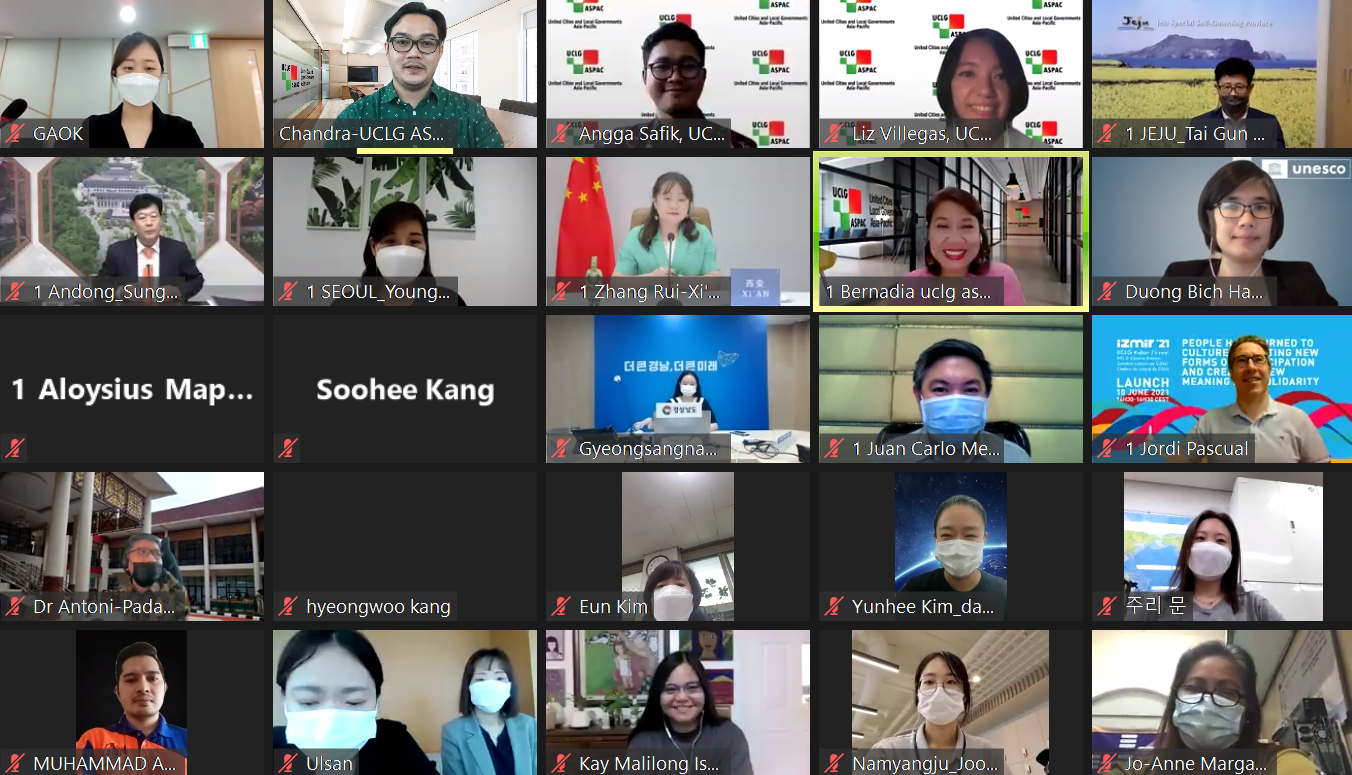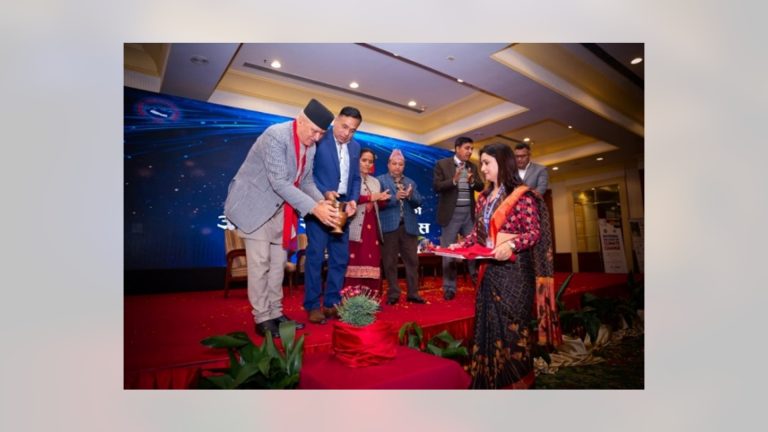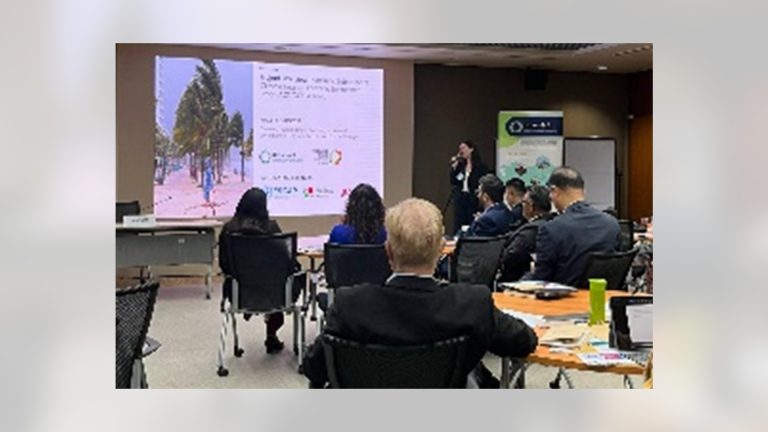17 June 2021 | UCLG ASPAC Culture Committee proudly organised the webinar “Show Must Go On: Culture and Cities in the Next Normal” in welcoming its newly launched publication “Culture Policies and Actions of Local Governments: An Asia-Pacific Perspective.” The publication was initiated by the UCLG ASPAC Culture Committee led by the Jeju Special Self-Governing Province. This webinar and publication launch was a celebration and appreciation for local governments’ commitment to incorporate and enliven culture even amid the pandemic challenge.
Mr. Hee-ryong Won, Governor of the Jeju Special Self-Governing Province, in his opening message, stressed that global solidarity plays a critical role in the fight against the pandemic and the importance of culture and arts in enhancing resilience across society. “The publication being launched today is filled with sweat and passion from local governments that seek to enhance the self-generating power and competitiveness of culture and arts amid challenges posed by COVID-19,” he said.
Dr. Bernadia Irawati Tjandradewi, Secretary General of UCLG ASPAC, facilitated a live poll with the participants. The survey showed that culture is part of the local government development plans and that local governments have undertaken activities on culture during the pandemic. Inclusivity was the key word that surfaced when the participants were asked about initiatives that should be prioritised by local governments to facilitate COVID-19 recovery for the cultural sector.
The publication “Culture Policies and Actions of Local Governments in Response to COVID-19: An Asia-Pacific Perspective” was a collective effort by the UCLG ASPAC Culture Committee and members and included initiatives from six local governments in the region. These local governments delivered their perspectives during the webinar.
Mr. Juan Carlo Medina, Mayor of Vigan City, shared that heritage activated progress in the city and will continue to be an important factor in its recovery. Cultural activities continued in Vigan, including implementation of infrastructure projects in its heritage district and conservation complex, improvement of public spaces, and virtual conduct of festivals and capacity building webinars. Production of local specialties were also supported by providing loan assistance to small businesses.
Mr. Sung-su Park, Deputy Mayor of Andong City, introduced the city’s cultural projects. The Ama-do Project, co-hosted by Andong City and the Andong Festival and Tourism Foundation, consisted of three programmes: exhibition programme, art talk, and art performances. The Andong-E Gamyeon is a shortened version of the International Andong Mask Dance Festival held every year. Andong successfully completed the two projects without any new infections and provided the spotlight for local art and artists in the city.
Mr. Tai Gun Kang, Chief of the Culture Policy Division of Jeju Special Self-Governing Province, recognised the need for discussion on the role of culture and arts during the pandemic and addressed this by organising a culture session during the Jeju Forum. Jeju also offered subsidy for artists and supported the production of online culture content.
Mrs. Young-mi Lee, Senior Manager of the Cultural Policy Division of Seoul Metropolitan Government, discussed how the Cheer Up Concert provided online performance opportunities to art groups and artists with cancelled performances. Acknowledging that the citizens are suffering from “Corona Blue” or depression due to self-isolation and social distancing, the local government started the “Soothing with Culture” Project to cheer up the citizens through various online and offline activities.
Ms. Rui Zhang, Member of International Cooperation & Exchange Office of Xi’an Municipal Administration of Culture and Tourism, stated that the COVID-19 pandemic had a major impact on the cultural tourism in Xi’an. She described the steps undertaken by the city to restart this industry: 1) shutting down cultural tourism enterprises to prevent the spread of COVID-19; 2) introducing supportive policies to assist the cultural tourism industry; and 3) launching online and offline cultural activities.
Mr. Aloysius Mapalo, Supervising Tourism Operations Officer of Baguio City, focused his presentation on the Ibagiw Creative Festival, a month-long event that provided creative tourism and supported artisans and craftsmen in the city. The festival fostered interactive engagement between creators and their audience in various art forms and spaces.
Mr. Jordi Pascual, Coordinator of UCLG Culture Committee, enlightened participants on the efforts of the committee to promote culture as the fourth pillar of sustainable development. This included the creation of the toolkits such as “Culture 21 Actions” and “Culture in the Sustainable Development Goals: A Guide for Local Action,” launch of the Observatory of Good Practices showcasing more than 230 good practices indexed according to the 17 SDGs, and work on the Culture2030Goal Campaign. He also briefly described three projects: Seven Keys workshop being implemented by Xi’an, Culture21 Lab undertaken by Makati and Greater Dandenong, and the Rome Charter which invited cities around the world to consider the right to participate in cultural life as the centre of recovery.
Ms. Duong Bich Hanh, Programme Specialist and Chief of Culture Unit in UNESCO Bangkok, expounded on the institution’s efforts to assist cities through various tools and publications. This included publications such as the “UNESCO Creative Cities’ Response to COVID-19”, “Cities, culture, creativity: leveraging culture and creativity for sustainable urban development and inclusive growth”, and “Culture | 2030 Indicators.” She also invited local governments to the UNESCO Asia-Pacific Awards for Cultural Heritage Conservation and the UNESCO Creative City Network Conference.
In his closing message, Mayor Medina reiterated that culture should be assimilated with recovery. “May we all bounce back with renewed dynamism in revitalising economic activity with culture at the centre of our efforts,” he concluded.
UCLG ASPAC congratulates all committed local leaders for the efforts taken and innovations developed. We also thank participation of all cities for the conclusion of the publication and to all participants and speakers in the webinar.
CLICK HERE to download Culture publication and presentation materials of speakers








